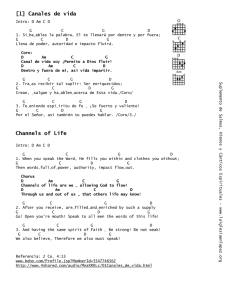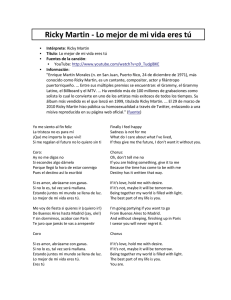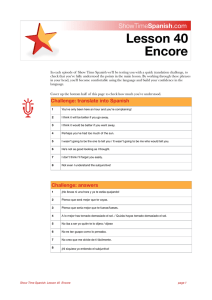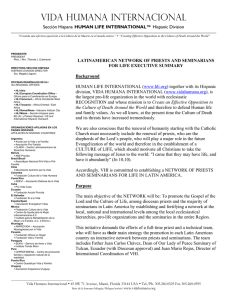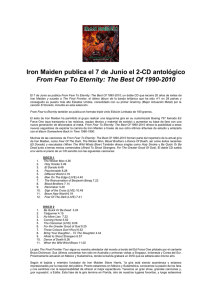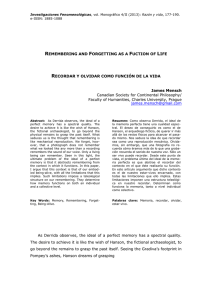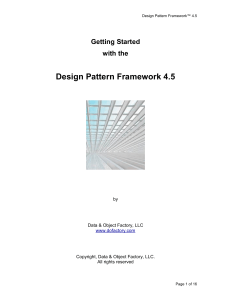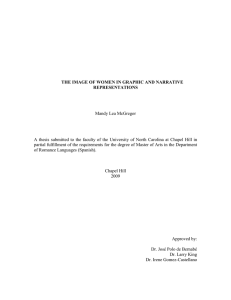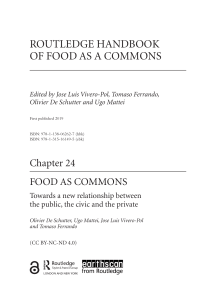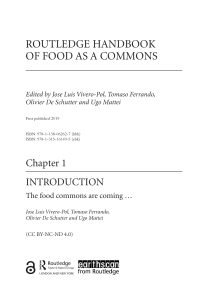For a human interface-Mejor Vida Corp
Anuncio
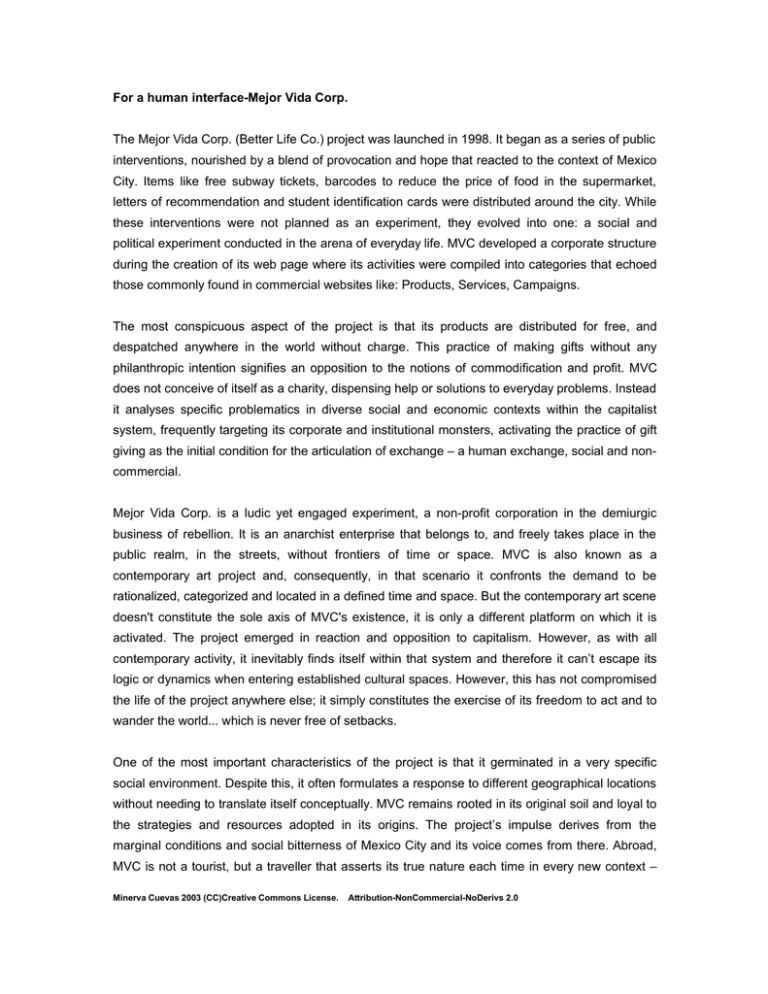
For a human interface-Mejor Vida Corp. The Mejor Vida Corp. (Better Life Co.) project was launched in 1998. It began as a series of public interventions, nourished by a blend of provocation and hope that reacted to the context of Mexico City. Items like free subway tickets, barcodes to reduce the price of food in the supermarket, letters of recommendation and student identification cards were distributed around the city. While these interventions were not planned as an experiment, they evolved into one: a social and political experiment conducted in the arena of everyday life. MVC developed a corporate structure during the creation of its web page where its activities were compiled into categories that echoed those commonly found in commercial websites like: Products, Services, Campaigns. The most conspicuous aspect of the project is that its products are distributed for free, and despatched anywhere in the world without charge. This practice of making gifts without any philanthropic intention signifies an opposition to the notions of commodification and profit. MVC does not conceive of itself as a charity, dispensing help or solutions to everyday problems. Instead it analyses specific problematics in diverse social and economic contexts within the capitalist system, frequently targeting its corporate and institutional monsters, activating the practice of gift giving as the initial condition for the articulation of exchange – a human exchange, social and noncommercial. Mejor Vida Corp. is a ludic yet engaged experiment, a non-profit corporation in the demiurgic business of rebellion. It is an anarchist enterprise that belongs to, and freely takes place in the public realm, in the streets, without frontiers of time or space. MVC is also known as a contemporary art project and, consequently, in that scenario it confronts the demand to be rationalized, categorized and located in a defined time and space. But the contemporary art scene doesn't constitute the sole axis of MVC's existence, it is only a different platform on which it is activated. The project emerged in reaction and opposition to capitalism. However, as with all contemporary activity, it inevitably finds itself within that system and therefore it can’t escape its logic or dynamics when entering established cultural spaces. However, this has not compromised the life of the project anywhere else; it simply constitutes the exercise of its freedom to act and to wander the world... which is never free of setbacks. One of the most important characteristics of the project is that it germinated in a very specific social environment. Despite this, it often formulates a response to different geographical locations without needing to translate itself conceptually. MVC remains rooted in its original soil and loyal to the strategies and resources adopted in its origins. The project’s impulse derives from the marginal conditions and social bitterness of Mexico City and its voice comes from there. Abroad, MVC is not a tourist, but a traveller that asserts its true nature each time in every new context – Minerva Cuevas 2003 (CC)Creative Commons License. Attribution-NonCommercial-NoDerivs 2.0 aiming for local subversion. Outside the field of art, Mejor Vida Corp. is not associated with one individual or author, it is publicly identified as a plural entity. The project is activated by one single person, but a certain collective spirit within it is probably due to the fact that, since its creation, it has become linked to autonomous projects of resistance and their communitarian practices. This development grew out of Mejor Vida Corp.’s questioning of the Mexican social context and because of its utopian militancy. Its relationships with international collectives (the most important with irational.org) is based on mutual trust and the shared use of resources, strategies, and information. These projects have been established to create networks that are coordinated through the use of technology. They do not, however, consider technology simply in terms of communications, creativity, or research. They argue that it is a fertile field in which to develop ethics, collective intelligence, mutualism and the socialization of knowledge through the use of free software. I have shared the doubts and distress of people involved in politically focused projects when presented in institutionalized cultural spaces. Perhaps entry into the cultural establishment is problematic for them because of the convenient reductionist categories encouraged within the cultural sphere, in which the energy, chaos and radicalism that are essential to these projects disappear. These elements cannot be contained, displayed or represented. They are in constant change and have to be experienced in their original environments and situations with all the freedom, camaraderie, struggles, tension, tiredness, sadness, happiness and filth that they generate. These political-creative projects work exceptionally hard to built their identities and acknowledge themselves in an alternative position. So, when they enter the territory of the establishment they, at least momentarily, stop seeing themselves as repressed or disregarded, and become aware that they are now in the midst of what is valued in the window displays of institutionalized culture. This shift must be discomforting and it has to generate doubts for those people in projects with genuine political interests. Suddenly they have to justify their presence in the circle of hegemonic culture - the arena of forces of regimentation and elitism. But where there is an entrance there is usually an emergency exit. The identity crisis of these projects doesn't seem so difficult to overcome if their inclusion in the cultural sphere is seen as a conversation in an arena that is usually composed of solo voices. Likewise, if the process is seen as a tactical denial of the isolation usually experienced it can be seen as a recognition of the relevance of their political action in a wider playing field. This inclusion can be one more path for resistance and the unfamiliar circumstances can even provide a learning experience about ‘the Minerva Cuevas 2003 (CC)Creative Commons License. Attribution-NonCommercial-NoDerivs 2.0 other’ and about the projects themselves. In a dialogue, both parties have a voice, but this does not mean that they agree. Militant projects have things to say and to defend publicly, their momentary presence in the institution does not compromise the development of their political project, their freedom to act will prevail because their creative energy make them uncontainable - like seven-year-old children in a classroom. Minerva Cuevas 2003 (CC)Creative Commons License. Attribution-NonCommercial-NoDerivs 2.0
